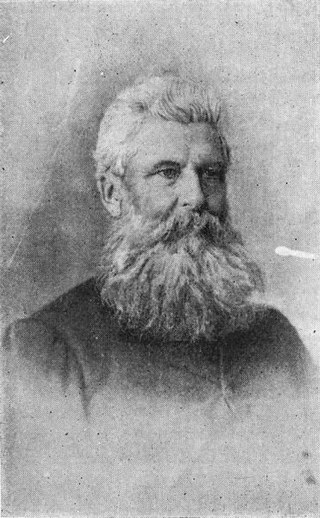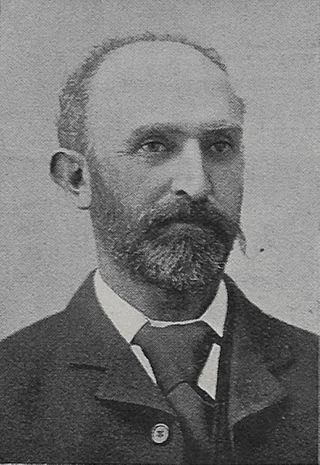Related Research Articles

East Coast is a New Zealand parliamentary electorate, returning one Member of Parliament to the New Zealand House of Representatives. The electorate first existed from 1871 to 1893, and was recreated in 1999. The current MP for East Coast is Dana Kirkpatrick of the National Party, who has held office since 2023.

Nelson is a New Zealand parliamentary electorate, returning one Member of Parliament to the House of Representatives of New Zealand. From 1853 to 1860, the electorate was called Town of Nelson. From 1860 to 1881, it was City of Nelson. The electorate is the only one that has continuously existed since the 1st Parliament in 1853.

Richard Harman Jeffares Reeves was a New Zealand politician of the Liberal Party. He was acting Speaker of the Legislative Council in 1905.
Grey Valley is a former parliamentary electorate in the West Coast region of New Zealand. The electorate was created for the 1871 general election as a single-member electorate, became a two-member electorate for the 1876 general election, and was split between the single-member electorates of Greymouth and Inangahua for the 1881 general election.
Thames is a former New Zealand electorate, in the Thames-Coromandel District. It existed from 1871 to 1946.
Newton was a 19th-century parliamentary electorate in Auckland, New Zealand. It existed from 1861 to 1893 and was represented by seven Members of Parliament.
Kumara was a parliamentary electorate in the West Coast region of New Zealand, from 1881 to 1890.
Gladstone was a parliamentary electorate in the Canterbury region of New Zealand, from 1866 to 1890.
Westland Boroughs was a parliamentary electorate in the West Coast of New Zealand from 1866 to 1870.
Westland South was a parliamentary electorate on the West Coast of New Zealand from 1868 to 1870.
Westland was a parliamentary electorate in the West Coast of New Zealand from 1866 to 1868 and 1890 to 1972. In 1972 the Tasman and West Coast electorates replaced the former Buller and Westland electorates.

Charles Edward Button was a solicitor, Supreme Court judge, Mayor of Hokitika and later Birkenhead, and an independent conservative Member of Parliament in New Zealand. Born in Tasmania, he came to New Zealand with his wife in 1863. He first lived in Invercargill, then in Westland, and after a brief period in Christchurch, he settled in Auckland. He was an MP for two periods, and when he was first elected to Parliament, he beat his colleague, friend, political opponent, and later Premier Richard Seddon; this was the only election defeat ever suffered by Seddon.
Edmund Barff was a 19th-century Member of Parliament from the West Coast, New Zealand.
John Bevan was a 19th-century member of the House of Representatives. He was an auctioneer and merchant from Hokitika on the West Coast of New Zealand.

Joseph Grimmond was a gold miner and politician from the West Coast, New Zealand. He was mayor of Ross for many years, represented the Hokitika electorate in the House of Representatives for one term, and was later called to the Legislative Council.
Robert Caldwell Reid was a 19th-century Member of Parliament from the West Coast, New Zealand. Born in Scotland and attracted by the gold rushes in Victoria and the West Coast, he was later the proprietor of a series of newspapers.
John White was a 19th-century member of the House of Representatives from the West Coast, New Zealand.

Westland High School, previously Hokitika High School or Hokitika District High School, is a secondary school in Hokitika, New Zealand.

Westland County, also known as County of Westland, was a local government area on the West Coast of New Zealand's South Island. It existed from 1868 to 1873, and then from 1876 until 1989. In its first incarnation, it constituted the government for the area that was split from the Canterbury Province, with the West Coast Gold Rush having given the impetus for that split. It had the same administrative powers as a provincial council, but the legislative power rested with Parliament in Wellington. The first Westland County was the predecessor to Westland Province.

The Hokitika by-election 1878 was a by-election held in the multi-member Hokitika electorate during the 6th New Zealand Parliament, on 26 June 1878. The by-election was caused by the resignation of incumbent MP Charles Button and was won by Seymour Thorne George, who defeated Gerard George Fitzgerald. Thorne George was suggested as a candidate by the premier, Sir George Grey; he was the Premier's nephew, and lived in the North Island.
References
- McRobie, Alan (1989). Electoral Atlas of New Zealand. Wellington: GP Books. ISBN 0-477-01384-8.
- Scholefield, Guy (1950) [First ed. published 1913]. New Zealand Parliamentary Record, 1840–1949 (3rd ed.). Wellington: Govt. Printer.
- Wilson, James Oakley (1985) [First ed. published 1913]. New Zealand Parliamentary Record, 1840–1984 (4th ed.). Wellington: V.R. Ward, Govt. Printer. OCLC 154283103.